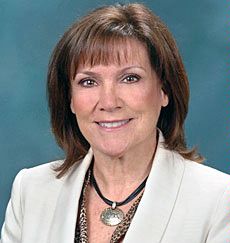Domestic violence and sexual assault is hard to talk about. We want to make a difference in society, and we want survivors to feel like they can talk about their feelings and experiences, but it’s scary.
It’s scary for the survivor of abuse to open up about what happened to them, but it’s also scary to hear.
I presented to parents and their children today, and I had no idea what to say. I wanted to teach the kids what CAPSA is so they can be a resource for their peers, but I also didn’t want to introduce them to a world they may never have been exposed to. For those who came from loving families, I didn’t want to be the one to tell them that some parents hit their children and their spouse. I didn’t want to tell them of the policeman who called CAPSA because a man threatened to kill his mother-in-law. I didn’t want to be the one to take away a child’s innocence. That’s part of why I didn’t want to talk about domestic violence today. But what other reasons do we have for not talking about abuse? Can I suggest a few?
Not in my…
Just like we don’t want to shatter the innocence of children, we also don’t want to ruin the reality we’ve created for ourselves. Even though we know abuse happens, we don’t want to own up to the fact that our society and our families are imperfect. We want to believe that our family’s better than that; our neighborhood’s better than that; our state’s better than that; our church is better than that, but abuse happens to everyone and anyone. It is no respecter of person’s, and though we can take steps to prevent it, we can’t ignore it when it does exist.
I should have known
We also may not want to talk about abuse because we don’t want to feel guilty or like we should have known. When a brother, sister or neighbor tells you they’ve been abused, you don’t want to be the one thinking, “If only I had known…” You also don’t want to be thinking back on your interactions and wondering how you missed the signs. That happened to me once. A co-worker unexpectedly disappeared and said she’d moved to Texas. She’d been inconsistent in her work recently, and I just thought she had a more whimsical, care-free personality than I did. I later found out she’d been taken by her partner to Texas and kept hostage in an apartment. She secretly sent a message to her parents letting them know her location, and with the help of police, they rescued her and brought her home.
Even though she was free from her abuser, he still called asking for her at work. I was always the one to answer the phone, and I didn’t know if it was better to tell him she no longer worked at the office or to tell him she was unavailable. I wasn’t sure what would be safer. But I still look back on that situation and think about how my coworker’s partner was always on Skype. We’d be in a meeting and he’d Skype in, and she had to answer it. He made her wear a ring on her left hand, and we all thought she was engaged or married, but she just said it was a promise ring. I look back and I see all these signs of abuse. How did I not notice them before? But although I was interning at CAPSA at the time, I was still caught in reason number one of why we don’t talk about abuse. I thought nothing like that would happen to my family, friends or co-workers. I may even have underestimated how common abuse is in Logan. Even being an intern, I may have thought, ‘well yeah, it happens to some people, but not my kind of people. Not people who are working where I am, pursuing a master’s degree and living a successful life.’ I was wrong.
Though it’s scary to talk about abuse, and it’s sad to think about individuals like my co-worker kidnapped and trapped, it’s important to talk about abuse, because you never know who’s going to talk to you about it. You also can’t end abuse if you don’t know what it is or what it looks like.
How to talk about it
Here are a few tips for discussing abuse with your family and peers:
- Use the media. TV shows, songs, music videos, movies and video games all provide opportunities to discuss domestic abuse and sexual assault. The National Network to End Domestic Violence has a list of more than 60 popular movies with domestic violence themes in them. Use this resource to know how and when to talk to children about what they’re seeing.
- Allow children to express themselves. Sometimes children won’t want to talk to you about domestic violence, but they may find it helpful to draw a picture about it or write in their journal about their feelings. Allow them to learn in whatever way is beneficial for them.
- Ask questions. Ask your peers about their dating lives. Talk about concerns and frustrations. Allow individuals to share their feelings with you freely.
- Do service. Providing service for CAPSA, or a similar organization, can be a good way to introduce people to domestic violence. If doing a coat drive, individuals may ask why we need coats. If helping in daycare, explain to those around you why CAPSA has a daycare, and how it helps clients.
- Refer to the experts. If you don’t know how to talk about a certain issue, you can always give CAPSA a call at (435) 753-2500, and we’ll help you out. We understand you may not know all the statistics, legal terms or complications associated with domestic violence or sexual assault. We’ll help you understand these things, as you have a desire to learn more.

 Dr. Christy Glass received her Master’s and PhD in Sociology from Yale University. Following her graduation, she began teaching at Utah State University in 2005. In 2016, she was named
Dr. Christy Glass received her Master’s and PhD in Sociology from Yale University. Following her graduation, she began teaching at Utah State University in 2005. In 2016, she was named 
